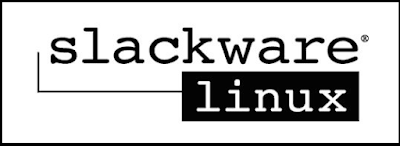Slackware 14.2 changelog
- Runs the 4.4.14 version of the Linux kernel from ftp.kernel.org. The 4.4.x series is well-tested, offers good performance, and will be getting long term support from kernel.org. For people interested in running the latest Linux kernel, we’ve also put configuration files for Linux 4.6 in /testing.
- System binaries are linked with the GNU C Library, version 2.23. This version of glibc also has excellent compatibility with existing binaries.
- X11 based on the X.Org Foundation’s modular X Window System. This is X11R7.7 with many improvements in terms of performance and hardware support.
- Installs gcc-5.3.0 as the default C, C++, Objective-C, Fortran-77/95/2003/2008, and Ada 95/2005/2012 compiler.
- Also includes LLVM and Clang, an alternate compiler for C, C++, Objective-C and Objective-C++.
- The x86_64 version of Slackware 14.2 supports installation and booting on machines using UEFI firmware.
- Support for NetworkManager for simple configuration of wired and wireless network connections, including mobile broadband, IPv6, VPN, and more. Roam seamlessly between known networks, and quickly set up new connections. We’ve retained full support for the traditional Slackware networking scripts and for the wicd network manager, offering choice and flexibility to all levels of users.
- Support for fully encrypted network connections with OpenSSL, OpenSSH, OpenVPN, and GnuPG.
- Apache (httpd) 2.4.20 web server with Dynamic Shared Object support, SSL, and PHP 5.6.23.
- USB2, USB3, IEEE 1394 (FireWire), and ACPI support, as well as legacy PCMCIA and Cardbus support. This makes Slackware a great operating system for your laptop.
- The udev (eudev) dynamic device management system for Linux 4.x. This locates and configures most hardware automatically as it is added (or removed) from the system, loading kernel modules as needed. It works along with the kernel’s tmpfs filesystem to create access nodes in the /dev directory.
- New development tools, including Perl 5.22.2, Python 2.7.11, Ruby 2.2.5, Subversion 1.9.4, git-2.9.0, mercurial-3.8.2, graphical tools like Qt designer and KDevelop, and much more.
- Updated versions of the Slackware package management tools make it easy to add, remove, upgrade, and make your own Slackware packages. Package tracking makes it easy to upgrade from Slackware 14.1 to Slackware 14.2 (see UPGRADE.TXT and CHANGES_AND_HINTS.TXT). The slackpkg tool can also help update from an older version of Slackware to a newer one, and keep your Slackware system up to date. In addition, the slacktrack utility will help you build and maintain your own packages.
- Web browsers galore! Includes KDE’s Konqueror 4.14.13, SeaMonkey 2.40 (this is the replacement for the Mozilla Suite), Mozilla Firefox ESR 45.2.0, as well as the Thunderbird 45.1.1 email and news client with advanced junk mail filtering. A script is also available in /extra to repackage Google Chrome as a native Slackware package (Chrome is only available for x86_64).
- The KDE Software Compilation 4.14.21 (KDE 4.14.3 with kdelibs-4.14.21), a complete desktop environment. This includes the Calligra productivity suite (previously known as KOffice), networking tools, GUI development with KDevelop, multimedia tools (including the Amarok music player and K3B disc burning software), the Konqueror web browser and file manager, dozens of games and utilities, international language support, and more.
- A collection of GTK+ based applications including pidgin-2.10.12, gimp-2.8.16, gkrellm-2.3.7, hexchat-2.12.1, xsane-0.999, and pan-0.139.
- A repository of extra software packages compiled and ready to run in the /extra directory. Many more improved and upgraded packages than we can list here.
Download Slackware OS

No comments:
Post a Comment